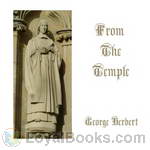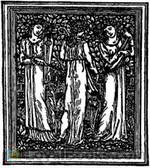|
Books Should Be Free Loyal Books Free Public Domain Audiobooks & eBook Downloads |
|
|
Books Should Be Free Loyal Books Free Public Domain Audiobooks & eBook Downloads |
|
Poetry |
|---|
|
Book type:
Sort by:
View by:
|
By: Sara Teasdale (1884-1933) | |
|---|---|
 Helen of Troy and Other Poems
Helen of Troy and Other Poems
| |
 India Wharf
India Wharf
Sara Teasdale was an American lyric poet. | |
By: Friedrich Schiller (1759-1805) | |
|---|---|
 The Poems of Schiller — Third period
The Poems of Schiller — Third period
| |
 The Poems of Schiller — First period
The Poems of Schiller — First period
| |
 The Poems of Schiller — Second period
The Poems of Schiller — Second period
| |
By: Robert Graves (1895-1985) | |
|---|---|
 Fairies and Fusiliers
Fairies and Fusiliers
| |
 Country Sentiment
Country Sentiment
| |
By: Edwin Arlington Robinson (1869-1935) | |
|---|---|
 Man Against the Sky: A Book of Poems
Man Against the Sky: A Book of Poems
This is a volume of later Poetry by the famous American poet Edwin Arlington Robinson. | |
 Three Taverns: A Book of Poems
Three Taverns: A Book of Poems
This is a volume of poems by Edwin Arlington Robinson. This volume contains, among other poems, the famous poems The Valley of the Shadow and Lazarus. | |
By: George Herbert (1593-1633) | |
|---|---|
 Selection from 'The Temple'
Selection from 'The Temple'
George Herbert (April 3, 1593 – March 1, 1633) was a Welsh poet, orator and a priest. Throughout his life he wrote religious poems characterized by a precision of language, a metrical versatility, and an ingenious use of imagery or conceits that was favored by the metaphysical school of poets. He is best remembered as a writer of poems and hymns such as “Come, My Way, My Truth, My Life” and “The King of Love My Shepherd Is.” | |
 From The Temple
From The Temple
George Herbert was a country minister, and a protégé of the great metaphysical poet John Donne. In The Temple, Herbert combines these two aspects of his training in one of the greatest cycles of religious poetry ever written. This is reading of a selection of these poems. | |
By: Robert Burns (1759-1796) | |
|---|---|
 Poems and Songs of Robert Burns
Poems and Songs of Robert Burns
| |
 Tam O'Shanter
Tam O'Shanter
| |
By: Alexander Pope | |
|---|---|
 An Essay on Criticism
An Essay on Criticism
An Essay on Criticism was the first major poem written by the English writer Alexander Pope (1688-1744). However, despite the title, the poem is not as much an original analysis as it is a compilation of Pope’s various literary opinions. A reading of the poem makes it clear that he is addressing not so much the ingenuous reader as the intending writer. It is written in a type of rhyming verse called heroic couplets. | |
By: James Boswell (1740-1795) | |
|---|---|
 No Abolition of Slavery Or the Universal Empire of Love, A poem
No Abolition of Slavery Or the Universal Empire of Love, A poem
| |
By: Amy Lowell (1874-1925) | |
|---|---|
 Dome of Many-Coloured Glass
Dome of Many-Coloured Glass
This is a collection of lyrical poems, sonnets and verses for children by Amy Lowell."For quaint pictorial exactitude and bizarrerie of color these poems remind one of Flemish masters and Dutch tulip gardens; again, they are fine and fantastic, like Venetian glass; and they are all curiously flooded with the moonlight of dreams. . . . Miss Lowell has a remarkable gift of what one might call the dramatic-decorative. Her decorative imagery is intensely dramatic, and her dramatic pictures are in themselves vivid and fantastic decorations." (Richard Le Gallienne, 'New York Times Book Review', 1916) | |
 Men, Women and Ghosts
Men, Women and Ghosts
This is a collection of long poems and short stories by Amy Lowell. | |
By: Paul Verlaine (1844-1896) | |
|---|---|
 Poems of Paul Verlaine
Poems of Paul Verlaine
| |
By: William Morris (1834-1896) | |
|---|---|
 The Tale of Beowulf Sometime King of the Folk of the Weder Geats
The Tale of Beowulf Sometime King of the Folk of the Weder Geats
| |
 The Earthly Paradise
The Earthly Paradise
| |
By: Alfred Noyes (1880-1958) | |
|---|---|
 Watchers of the Sky
Watchers of the Sky
| |
 Drake
Drake
Alfred Noyes, in the blank-verse epic "Drake", fictionalizes the historical Francis Drake, who, during the reign of Elizabeth I of England, sailed (and plundered) on the Spanish Main and beyond. | |
 The Lord of Misrule And Other Poems
The Lord of Misrule And Other Poems
| |
By: William Dean Howells (1837-1920) | |
|---|---|
 The Daughter of the Storage And Other Things in Prose and Verse
The Daughter of the Storage And Other Things in Prose and Verse
| |
 Poems
Poems
| |
By: Carl Sandburg (1878-1967) | |
|---|---|
 Cornhuskers
Cornhuskers
Carl Sandburg’s collection of 103 poems that earned a Pulitzer Prize Special Letters Award in 1919. | |
By: Hilaire Belloc (1870-1953) | |
|---|---|
 Cautionary Tales for Children
Cautionary Tales for Children
| |
By: Bret Harte (1836-1902) | |
|---|---|
 What the Wolf Really Said to Little Red Riding Hood
What the Wolf Really Said to Little Red Riding Hood
Francis Bret Harte was an American author and poet, best remembered for his short fiction featuring miners, gamblers, and other romantic figures of the California Gold Rush. In a career spanning more than four decades, he wrote poetry, fiction, plays, lectures, book reviews, editorials, and magazine sketches in addition to fiction. As he moved from California to the eastern U.S. to Europe, he incorporated new subjects and characters into his stories, but his Gold Rush tales have been most often reprinted, adapted, and admired. | |
 Excelsior
Excelsior
| |
By: William McGonagall (1825-1902) | |
|---|---|
 Temperance Gems
Temperance Gems
Good people all, of every degree,I pray, ye all be warned by me:I advise ye all to pause and think,And never more to taste strong drink. Some people do say it is good when taken in moderation,But, when taken to excess, it leads to tribulation,Also to starvation and loss of reputation,Likewise your eternal soul’s damnation. McGonagall has been widely acclaimed as the worst poet in British history. He campaigned vigorously against excessive drinking, appearing in pubs and bars to give edifying poems and speeches... | |
By: G. K. Chesterton (1874-1936) | |
|---|---|
 The Ballad of St. Barbara and Other Verses
The Ballad of St. Barbara and Other Verses
This book of poetry by G.K. Chesterton, originally published in 1922, contain 35 poems on a variety of subjects. | |
By: Hopkins, Gerard Manley (1844-1889) | |
|---|---|
 Poems of Gerard Manley Hopkins, ed. Robert Bridges
Poems of Gerard Manley Hopkins, ed. Robert Bridges
Gerard Manley Hopkins (1844–89) was an English poet, educated at Oxford. Entering the Roman Catholic Church in 1866 and the Jesuit novitiate in 1868, he was ordained in 1877. Upon becoming a Jesuit he burned much of his early verse and abandoned the writing of poetry. However, the sinking in 1875 of a German ship carrying five Franciscan nuns, exiles from Germany, inspired him to write one of his most impressive poems “The Wreck of the Deutschland.” Thereafter he produced his best poetry, including “God’s Grandeur,” “The Windhover,” “The Leaden Echo,” and “The Golden Echo.” | |